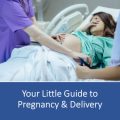Sample Content Preview
Benefits of Exercise During Pregnancy
You may not feel like it when you are pregnant, and are starting to feel slightly out of proportion, but exercise is really very good for you and your baby. You won’t be running any marathons by any means, but you will benefit from any exercise that your doctor allows you to do. Did you know that, when you are pregnant, the recommendation for exercise is 30 minutes a day of moderate exercising?
If you were exercising before you became pregnant, talk to your doctor about continuing on that same program. And if you haven’t been on a regular program before you became pregnant, talk with your doctor on how to get started.
Some of the benefits include, but are not limited to the following;
* You will feel better by increasing your energy level.
* The muscles in your back, butt and thighs will be strengthened and relieve you of back pain you have
* Regular exercise can prevent you from being constipated
* Exercising activates the lubricant called synovial fluid in your joints.
* You will sleep better because your exercising relieves your body of stress and anxiety.
* When you exercise, your blood flow in your body is increased, giving you a healthy glow.
* Exercising prepares your body for childbirth and the long road that may be ahead during labor and delivery
* If you exercise during pregnancy, it will be easier to regain your shape after delivery.
Under the supervision of your doctor, you may be able to enjoy benefits from the following exercises:
* Dancing
* Swimming
* Water aerobics
* Riding bicycle
* Going for a walk
Yoga and pilates are perfect for your exercise program during pregnancy. They are low impact and help develop your strength, flexibility, and help you to relax
If you develop the following symptoms, it means your body is trying to tell you to slow down.
* Feeling really tired
* Feeling dizzy
* Your heart pounding in your chest
* Being short of breath
* Back or pelvic pain
Keep in mind that as your pregnancy advances, your body shape will change and so will your sense of balance. So, keep in touch with your doctor about your routine. Also, if you find yourself unable to talk while you do your exercises, slow down. Keep your heart rate below 160 beats per minute.
Any way you look at it, no matter what kind of exercises you are allowed by your doctor to do, you will benefit in some way or another. You will feel proud of yourself for having the self discipline after the baby is born and you are back on your feet again with a little more energy than you would have if you had not done any exercises. Just make sure that you take enough breaks, and drink plenty of water.
Exercising Restrictions During Pregnancy
Almost all medical professionals will agree that exercising while pregnant is very good for you and provides a variety of benefits. There are, however, some exercises that should be avoided.
After the first trimester, weight lifting and sit ups are not recommended. Lifting weights reduces the blood flow to your kidneys and uterus, which decreases the blood supply to your baby. Instead of doing sit-ups to tone your abdomen, get down on all fours to tighten and release your abdomen muscles as you exhale.
The following exercises should be avoided unless your doctor instructs you differently.
* An exercise that requires you to bounce
* An exercise that has a lot of up and down movements
* An exercise that forces you to leap
* An exercise that will make you take sudden changes in direction
* An exercise that may cause any risk to the abdomen.
Your doctor may also limit you on the following;
* Sports involving physical contact
* Skiing downhill
* Scuba diving
* Riding horses
Step aerobics is accepted only if you can lower your step as you progress in your pregnancy. If you do continue with aerobics, remember to not do them to the point of exhaustion or becoming short of breath.
The following symptoms are signs from your body that something is not quite right. Please pay attention to your body as it speaks to you.
* Spotting or Bleeding from the vagina
* Pain that is unusual for you
* Being dizzy or lightheaded
* Becoming short of breath
* Pain in your chest or fast heart palpitations
* Leaking fluid from your vagina
* Contractions in the uterus
After permission from your doctor to exercise, start slowly at 5 minutes and gradually increase your time. Eat snacks, drink plenty of water and avoid getting dehydrated. Dress comfortably, including wearing a bra that will give good support to your breasts. If you get sick, do not exercise that day. On a hot day, walk in an air conditioned building. And most importantly, if your body is trying to tell you something, you need to listen to it.
Other Details- 1 Ebook (DOC)
- File Size: 442 KB













